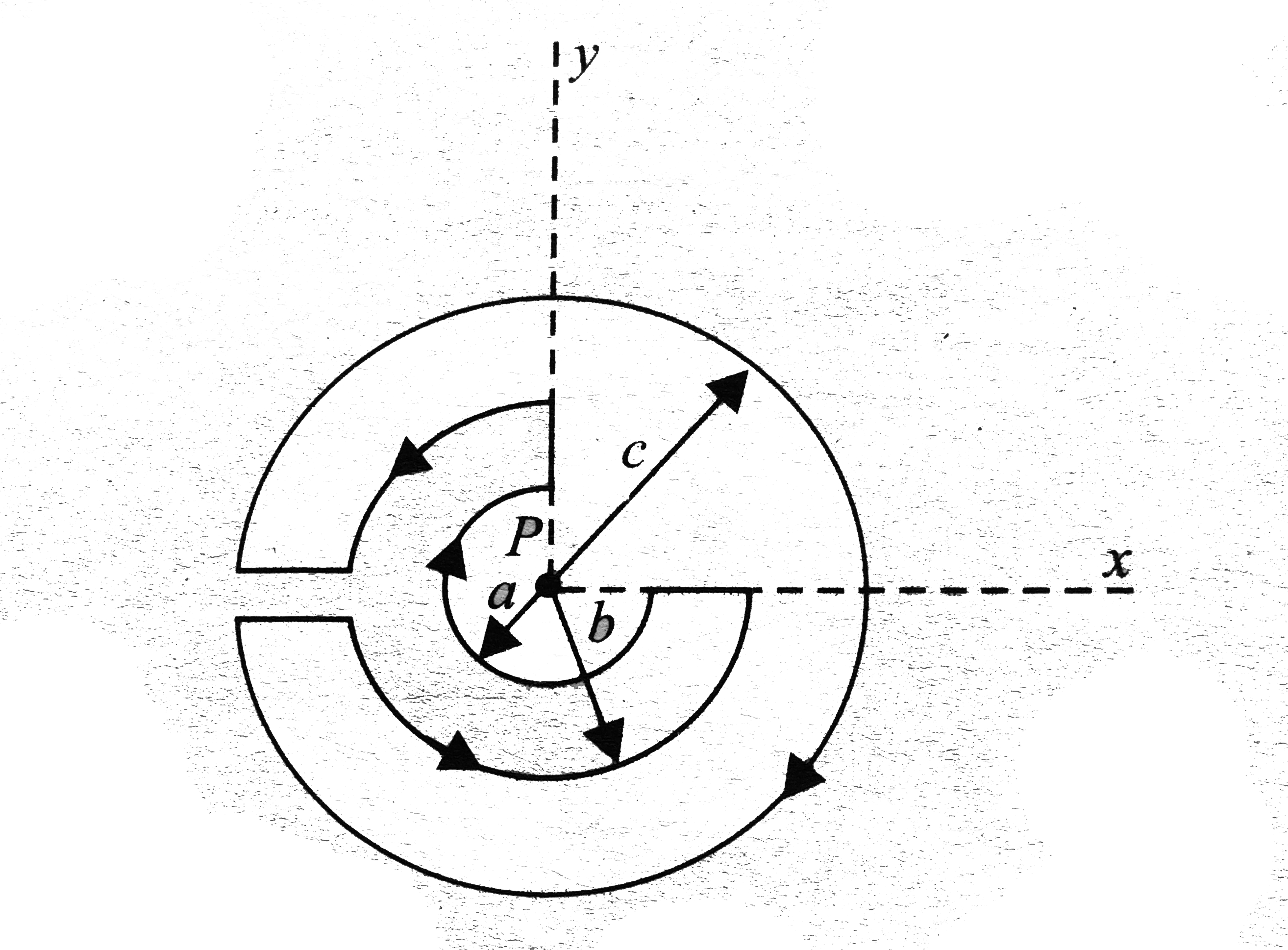If a chraged particle at rest experiences no electromagnetic force,
(i) the electric field must be zero
(ii) the magnetic field must be zero
(iii) the electric field may or may not be zero
(iv) the magnetic field may or may not be zero
The electric field must be zero
The magnetic field must be zero
The electric field may or may not be zero
All of these
The correct Answer is:A
To solve the question, we need to analyze the situation where a charged particle is at rest and experiences no electromagnetic force. We will use the Lorentz force equation to understand the implications of this scenario.
1. Understanding the Lorentz Force Equation:
The Lorentz force F acting on a charged particle is given by the equation:
F=qE+q(v×B)
where:
- F is the total force on the charged particle,
- q is the charge of the particle,
- E is the electric field,
- v is the velocity of the particle,
- B is the magnetic field.
2. Analyzing the Given Condition:
The problem states that the charged particle is at rest. This means that the velocity v=0. Therefore, the magnetic force term q(v×B) becomes zero:
F=qE+q(0×B)=qE
Hence, the total force on the particle is solely due to the electric field.
3. Condition of No Force:
Since it is given that the particle experiences no electromagnetic force, we have:
F=0
This implies:
qE=0
Since q (the charge) is not zero, we conclude that:
E=0
Therefore, the electric field must be zero for the particle to experience no force.
4. Evaluating the Options:
- Option (i): The electric field must be zero. (True)
- Option (ii): The magnetic field must be zero. (False) - The magnetic field can be present, but it does not affect the particle since it is at rest.
- Option (iii): The electric field may or may not be zero. (False) - We established that the electric field must be zero.
- Option (iv): The magnetic field may or may not be zero. (True) - The magnetic field's presence does not affect the force on the particle since it is at rest.
Conclusion:
The correct options are:
- (i) The electric field must be zero.
- (iv) The magnetic field may or may not be zero.
The Lorentz force F acting on a charged particle is given by the equation:
F=qE+q(v×B)
where:
- F is the total force on the charged particle,
- q is the charge of the particle,
- E is the electric field,
- v is the velocity of the particle,
- B is the magnetic field.
The problem states that the charged particle is at rest. This means that the velocity v=0. Therefore, the magnetic force term q(v×B) becomes zero:
F=qE+q(0×B)=qE
Hence, the total force on the particle is solely due to the electric field.
Since it is given that the particle experiences no electromagnetic force, we have:
F=0
This implies:
qE=0
Since q (the charge) is not zero, we conclude that:
E=0
Therefore, the electric field must be zero for the particle to experience no force.
- Option (i): The electric field must be zero. (True)
- Option (ii): The magnetic field must be zero. (False) - The magnetic field can be present, but it does not affect the particle since it is at rest.
- Option (iii): The electric field may or may not be zero. (False) - We established that the electric field must be zero.
- Option (iv): The magnetic field may or may not be zero. (True) - The magnetic field's presence does not affect the force on the particle since it is at rest.
The correct options are:
- (i) The electric field must be zero.
- (iv) The magnetic field may or may not be zero.
Topper's Solved these Questions
Similar Questions
If a charged particle at rest experiences no electromagnetic force, then
The electric field must be zero
View SolutionIf a charged particle at rest experiences no electromagnetic force, then electric field in that region
View SolutionA He2+ at rest experiences an electromagnetic force. Then (where E is electric field and is B magnetic field)
View SolutionElectric field induced by changing magnetic fields are
View SolutionCan an electromagnetic wave be deflected by an electric field? By a magnetic field ?
View SolutionCan an electromagnetic wave be deflected by an electric field? By a magnetic field ?
View SolutionFor c=2a if, the magnetic field at point P will be zero when

View SolutionA charged particle is at rest in the region where magnetic field and electric field are parallel. The particle will move in a
View SolutionIf the flux of the electric field through a closed surface is zero ,
(i) the electric field must be zero everywhere on the surface
(ii) the electric field may be zero everywhere on the surface
(iii) the charge inside the surface must be zero
(iv) the charge in the vicinity of the surface must be zero
View SolutionAn electron beam produces
i) Electrical field around the beam
ii) Magnetic field around the beam
iii) Electrical field is more stronger than the magnetic field
iv) Electrical and magnetic fields are not produced
View Solution
